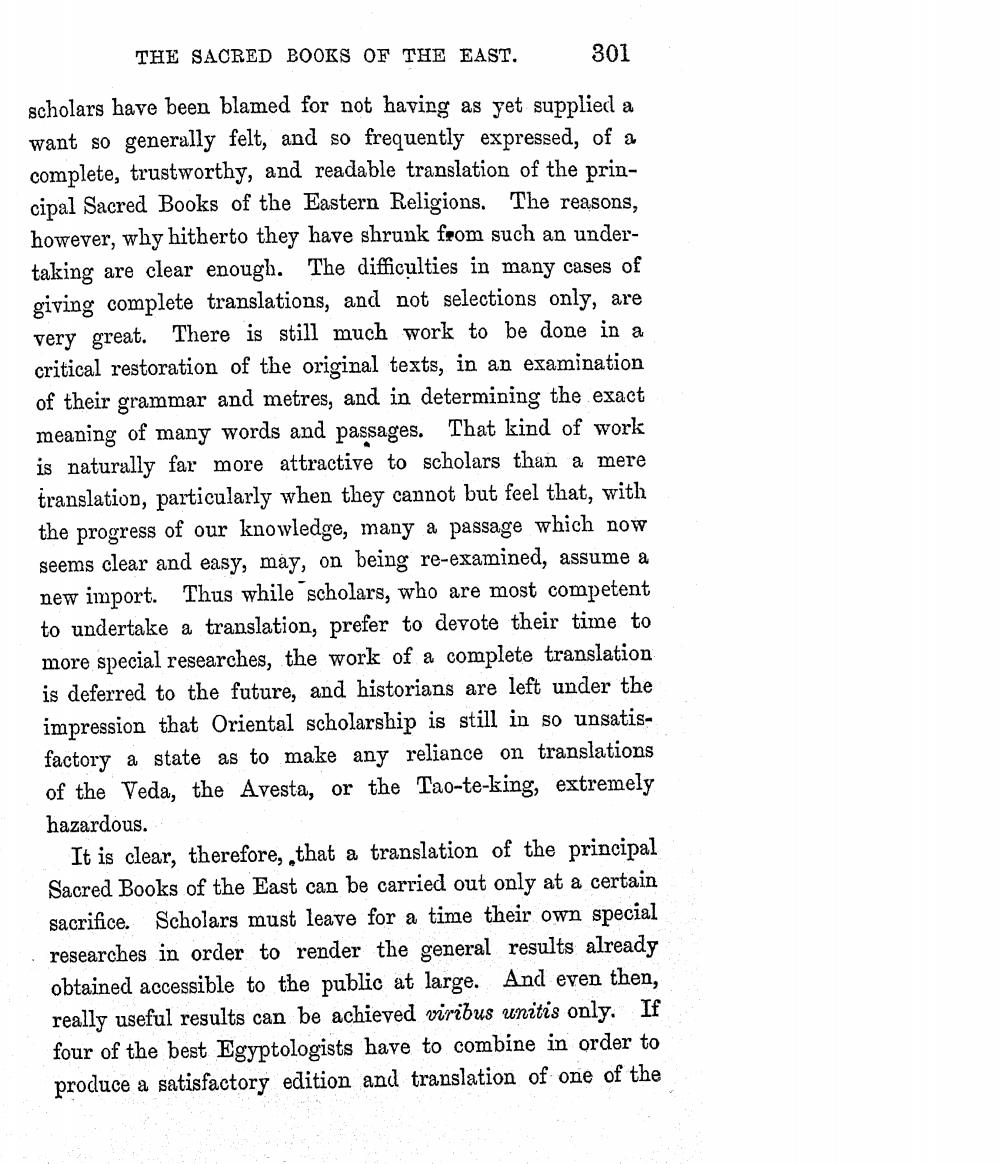________________
THE SACRED BOOKS OF THE EAST.
301
scholars have been blamed for not having as yet supplied a want so generally felt, and so frequently expressed, of a complete, trustworthy, and readable translation of the principal Sacred Books of the Eastern Religions. The reasons, however, why hitherto they have shrunk from such an undertaking are clear enough. The difficulties in many cases of giving complete translations, and not selections only, are very great. There is still much work to be done in a critical restoration of the original texts, in an examination of their grammar and metres, and in determining the exact meaning of many words and passages. That kind of work is naturally far more attractive to scholars than a mere translation, particularly when they cannot but feel that, with the progress of our knowledge, many a passage which now seems clear and easy, may, on being re-examined, assume a new import. Thus while scholars, who are most competent to undertake a translation, prefer to devote their time to more special researches, the work of a complete translation is deferred to the future, and historians are left under the impression that Oriental scholarship is still in so unsatisfactory a state as to make any reliance on translations of the Veda, the Avesta, or the Tao-te-king, extremely hazardous.
It is clear, therefore, that a translation of the principal Sacred Books of the East can be carried out only at a certain sacrifice. Scholars must leave for a time their own special researches in order to render the general results already obtained accessible to the public at large. And even then, really useful results can be achieved viribus unitis only. If four of the best Egyptologists have to combine in order to produce a satisfactory edition and translation of one of the




